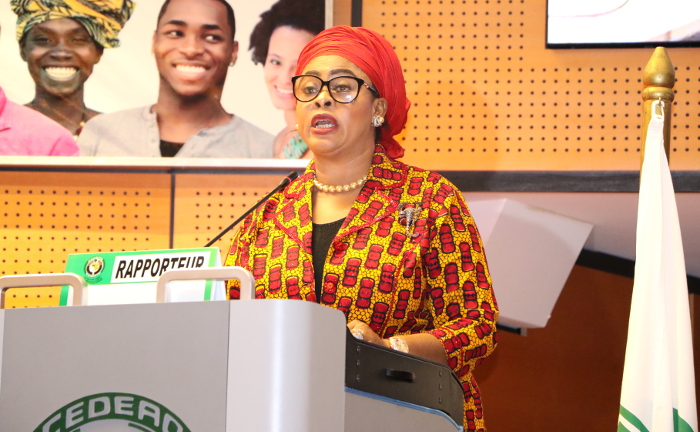
Youth And Women Empowerment Essential – Stella Oduah
Youth unemployment is currently at its highest in Nigeria. According to the National Bureau of Statistics, about 39 million Nigerians – mostly young people – are unemployed.
As a matter of fact, unemployment has been a longstanding challenge in the country, but despite government’s effort to tackle it, the problem endures.
I believe giving young Nigerians access to knowledge and skills, and equipping them with the resources to be self-reliant and independent of the government is a veritable way to addressing the unemployment problem.
This is the reason I routinely train the youth of my constituency – Anambra North, in diverse entreprenuerial skills, and also empower them with cash to start off a business. In April, 20 young men and women were empowered with real skills and N4 million to support their business. And more people are being trained and empowered. This has positively impacted the local economy, reducing poverty and joblessness.This is not an end, but a means to it.
Basically, mainstreaming empowerment is essential for youth participation in politics. Only an empowered young person can stand to demand accountability from the government without compromise, and only an empowered young person can be involved in the politics of the day because his basic needs – food, shelter, clothing – are no longer an encumbrance.
We must create more entreprenuers and innovators by encouraging human capital development. That is the way we can make progress. Imagine, if more Nigerians with the means empower the youth of their communities, unemployment will certainly beat a retreat.
Also, recently, the World Bank granted Nigeria $2.2 billion concessional loan to fund seven key projects.
Among these projects is one targeted at women tagged, ‘Nigeria for Women Project’. The Bank approved $100 million for this project, which is the only gender specific one among the seven.
Also, the fifth Sustainable Development Goal known as ‘SDG 5’ is to achieve gender equality and empowerment of all women and girls by 2030.
This clearly accents the importance of women empowerment. And if we are to achieve this goal by the set time, no effort must be spared in empowering and supporting our women.
I believe if women are empowered, leadership can, to an extent, be accessed by them.
My idea of women empowerment is giving our mothers, sisters and daughters the wherewithal to support themselves, their homes and children, and also to be a voice in their communities. Not to compete with men, but to excel them, and be the best in their chosen endeavours.
It is for this reason that I routinely sponsor trainings for the women of my constituency (Anambra North); provide them with cash and all necessary support to thrive in their professional, business or academic pursuit.
Also, I believe legislation is vital to addressing the dearth of women in elective and appointive positions. I sponsored a motion on the need to stop women under-representation in elective and appointive positions at all levels of government in Nigeria, and to implement an affirmative action of 30 percent of women at the senate. And I will continue to sponsor legislations targeted at women’s issues until there is a respite. I will ensure laws deliberately aimed at improving the plight of women economically and politically are promoted and passed.
As a people, we must help young women, with interest and leadership potential, in realising the dream of representing their constituencies in parliament at the state and national level. I will continue to do the utmost regarding this.
As a matter of fact, women constitute an expansive block of the electorate in Nigeria. And they often take the lead in voting in elections.
For example, in the 2015 general election in Nigeria, 45,888,984 registered voters were women, while 22,944,984 were men. Despite being the larger block of the electorate, women occupy less than 7 percent of positions in government (elective and appointive) in the country.
According to the Independent National Electoral Commission (INEC) statistical representation of women in elective positions in 2015, women have only 6.1 percent representation in State Houses of Assembly; 3.89 percent in the House of Representatives and 7.34 percent in the Senate. And in the executive, women are also not well represented.
Based on these statistics, it is clear that women are not where they ought to be in terms of representation in government. It is for this reason that we must make the empowerment of women a priority so as to give them the voice to speak to power and to take what is theirs.
In addition, we must address socio-cultural and religious practices, inadequate financial resources, volatile political environment, and political party discrimination, which encumber women participation in politics. Legislation and political will can check these strictures.
In all, we must empower our women and the youth because in so doing we are empowering the nation.






